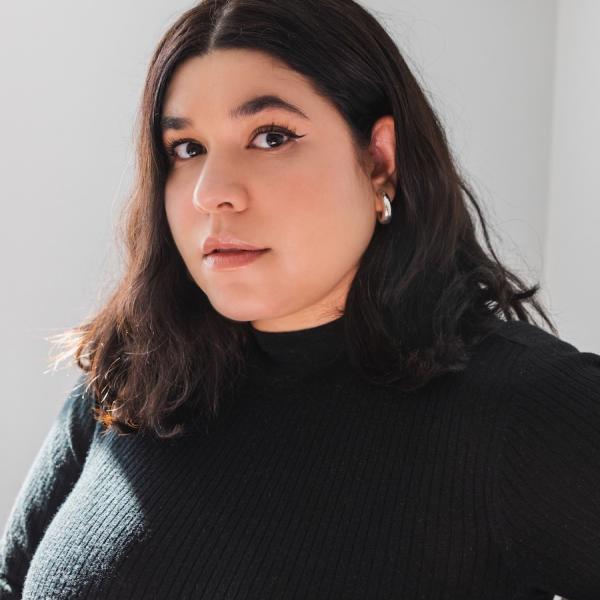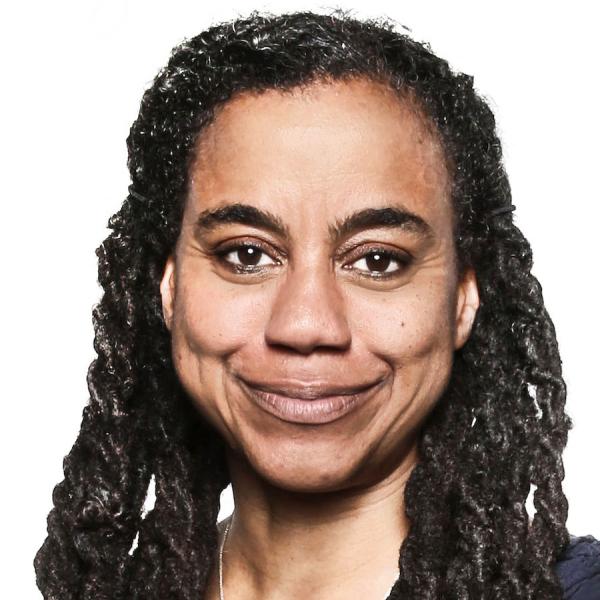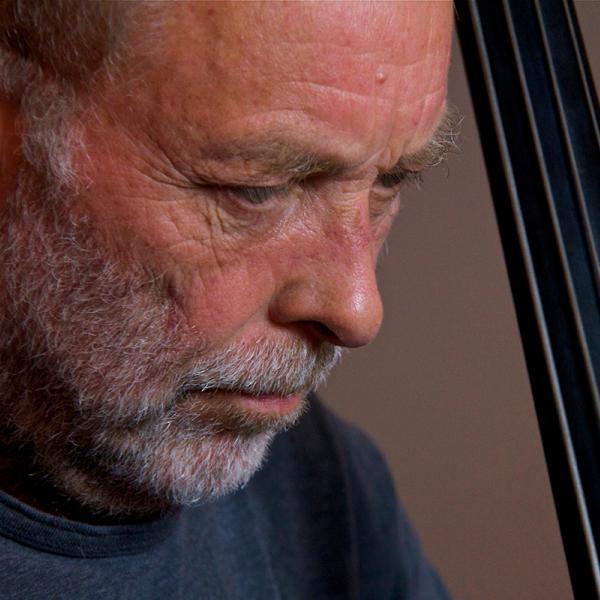Meta Golding

Jo Reed: Yeah. Getting the word out to 55,000 people that's a lot of the mimeographs.
Meta Golding: It really is. I think I heard it was they got out 35,000 mimeographs out. And then everything else was word-of-mouth.
Jo Reed: One thing I really liked about this film is that they showed people working—yes, having day jobs and working during the day—but working on organizing, working on activism, working on civil rights. That the movement happened because ordinary people made it happen.
Meta Golding: Exactly. Rosa Parks was a seamstress. E.D. Nixon was a porter man on the train. These were regular people who just were activists on the side. I mean that was really their lives. But they had regular jobs. This was one woman who had just had had enough and, you know, it was teachers, churchgoing people, regular people that weren't paid to do this but just had to do this. And we always think about oh Martin Luther King, what an icon. Rosa Parks what an icon. She didn't think she was an icon. She was just a regular person who just, you know, your regular working-class person who just couldn't take it anymore, you know. And was committed.
Jo Reed: The press for Behind the Movement said that the film was put together very quickly. So it was a tight schedule. How long did you have to prepare?
Meta Golding: Oh, not that long. Three weeks. Yeah. And then we shot it in thirteen days.
Jo Reed: Oh my God.
Meta Golding: Yeah. So it is really, “Okay we’re doing this and let's just jump in.” And I think that for me I just was like “Well, you know, I've been acting for a while. I'm just going to trust that this is just going to come through.” And, you know, the other actors are phenomenal and have been kind of my idols. So they just jumped in as well and they also really know what they're doing. This is the deal, so we all got the script and I think everyone felt like this was bigger than us. And that this story is really, really important to tell. And it hadn’t been told like this before. So everyone just kind of dropped everything and just jumped into this including the grips, including the makeup/hair people. I mean the schedule, you know, for what we achieved not that anybody gets any medals for working fast. But I just think there was this sense that this story was really relevant today and really an important American story that needed to be told.
Jo Reed: And we should mention, Isaiah Washington played E.D. Nixon—
Meta Golding: Yes. Yes.
Jo Reed: Loretta Devine was Jo Ann Robinson.
Meta Golding: Yes. Roger Guenveur Smith was Raymond Parks. They’re just beautiful, beautiful actors. And I think you see that in the film.
Jo Reed: And to compound this and the schedule—it's a period piece!
Meta Golding: Yes, I know. <laughs> Yes. Yes. It's a period piece. Sometimes extras had to be sent back home because their do’s were a little too 2017 and not 1955. So it was a lot of work.
Jo Reed: But it was put together so beautifully. The costumes, as you mentioned earlier, were particularly striking—they really set the mood. I really loved the lace collars that Rosa Parks wore. It was beautiful.
Meta Golding: Beautiful. And the costume Rosa in the church, that was made specially and it's a replica of the dress she actually wore. We shot this in Atlanta and so the vintage selection there is fantastic. They pulled from just regular vintage stores and it was clothes from the fifties.
Jo Reed: So many people involved with the production of this film are African American. TV One is an African-American owned media company. The director was African-American, the editor was African-American, the screenwriter was African-American—there just seemed to be a conscious effort to involve as many African-Americans as possible not just in front of the camera but behind the camera as well.
Meta Golding: Oh, yes. I think it's just I think it's beautiful and I think it's timely and I think it's fantastic that we are getting to have our own narrative. And also TV One has a lot of women running the show for their TV shows. So I think it was just like a natural fit. Like, of course, we’re going to hire a black writer. And there are so many wonderful black writers and black directors. And so, it was fantastic. And I felt like Aric Avelino is a wonderful filmmaker and I was really surprised to find out that there had only been one other movie about Rosa Parks.
Jo Reed: I was too! I was surprised when I learned the film was done in such a short period of time because it is such a rich-looking film.
Meta Golding: It is, isn't it? Yeah. That's what I think too. You know, yeah. Again, I think it's because everybody just really loved the story and really fell in love with the importance of telling the story and so everybody just gave it their all. And many times on the set while I was there people would be crying, like grips, you know, or extras. And so it was this feeling that this was history. Because the power of film is profound. But I also think that when you're dealing with historical fiction nowadays that becomes the history. You know? And so like when I think of a film like Zero Dark Thirty I'm like, “Okay so now that's what I think about Osama bin Laden”, the image is in my head, you know? So we all felt like Well besides whether this film is going to do well, this is something that will be perhaps a teaching tool, you know? Or perhaps now people will think about that the Montgomery Bus Boycott through viewing this film. And so it just felt like, “Oh we’re doing something that is going to affect the way people think about our own history.”
Jo Reed: Because film holds a collective memory in some ways.
Meta Golding: Exactly.
Jo Reed: Now, you have a multinational background.
Meta Golding: I do you, yes. My mother is from Haiti and my father is American. And we followed my father's career and he worked for the United Nations and CARE and that kind of work. And so I was almost like a military brat and that I moved around a lot as a kid. And I think it’s part of the reason that I’m an actor is because I always had to—I was always the new kid and it was a new culture and a new language, everything. And I was like a little anthropologist and was always very curious about oh, wow, everybody is the same but everybody does things so differently. So even though I always was upset when we had to move looking back now I'm so grateful for my upbringing.
Jo Reed: Had you always wanted to act from the time you were a kid?
Meta Golding: Pretty much. Yeah. I mean I was also a figure skater. I was a competitive figure skater. So I was always doing plays but I was always performing and dancing and training. And I always had like a career even as a kid. And so when I stopped skating team competitively around 15, 16 I felt like what am I—like I can't just go to school. You know, I had too much energy. And so I started doing theater and it just stayed with me and I went to college and did theater there. And then I got out of school and got a job. I've always been an actor.
Jo Reed: Can you talk about what about acting or what about theater or film appeals to you?
Meta Golding: It's funny, I was just having this conversation yesterday. Besides the fact that I just like to perform, right, like there's something about getting on stage or being in front of the camera that physically I enjoy. What it feels like to be Rosa Parks is an amazing feeling that just kind of in a selfish way it's all of these new experiences that I can kind of explore within myself. But then I also I really like telling stories and making people feel or think. You know, if anybody gets at all moved or has a little bit of relief or people think a little bit differently after they see—I know that when I go to the movies and when I go to theater if something makes me feel I really enjoy it and that's what I hope that people take away from what I do.
Jo Reed: Do you remember your first paying role?
Meta Golding: Yes, of course! It was a soap opera. It was called Loving which it was a little twin sister of All My Children. And it was the lowest rated soap opera on television. But I loved it. <laughs> And I was straight out of college. And, in fact, I ran into Alimi Ballard, this actor--we were like the teenage kids on the show and we were boyfriend and girlfriend. And I couldn't believe it. I remember just being so excited to be there and I just was like, “This is amazing!”
Jo Reed: Well, people talk about what good training soap operas are because, you know, you get sides every day.
Meta Golding: Yeah, and you shoot a show in one day, like a whole show.
Jo Reed: Right. No time to be precious here. <laughs>
Jo Reed: Yeah, exactly. And now, I think, the soaps are kind of on their decline. But for a long time that was training ground for so many people and where people pulled young talent from. So yeah, that was a big deal and really exciting for me.
Jo Reed: Do you do stage too?
Meta Golding: I do. I do. Not as much as I would like to. Yeah, in fact, I'm so excited about Meghan Markle because a couple of years ago I did a play about Queen Charlotte who was married to King George. And supposedly, Queen Charlotte, she was a German princess and she was part African. And it was a time when everybody went into whiteface. So she was always in whiteface and always hiding her African background. And so that was a beautiful play. So the playwright and I are like, “Oh my God! Now with Meghan Markle, we can really take this to Broadway!” <laughs>
Jo Reed: Now, as an actress what is it that you would like people to take away from Behind the Movement?
Meta Golding: I would like people to really take away how much Rosa Parks, and all of the other activists in Montgomery, how brave they were and how brave everyone at the time was to get on board and how much strategy and faith. Because a lot of people thought they were crazy to be doing this, to be resisting, to be standing up. But they just knew that things had to change and they risked their lives. This is our collective history and so I hope that people are more proud of us as Americans and also maybe even a little courage to stand up for things that you believe in or that you think are not right and to participate in community because you can't just complain about things. I think it's really important to participate in community.
Jo Reed: And tell me, what's next for you?
Meta Golding: Well, I'm going to be starring as Cleopatra next with Steven Spielberg. No, I'm kidding. <laughs>
Meta Golding: I am trying to figure that out as we speak. But this is definitely a hard act to follow.
Jo Reed: That's exactly where I was going because you must need some time to just keep breathing through it.
Meta Golding: Yeah, exactly.
Jo Reed: Well, Meta thank you so much for giving me your time. I appreciate it.
Meta Golding: It's such an honor for me to be here. This makes my family so happy and me so happy. So thank you so much for all of your support. I really appreciate it.
Jo Reed: You're very welcome.
#### End of Meta_Golding_Blended.mp3 ####Jo Reed: That’s actor Meta Golding, she’s playing Rosa Parks in the film Behind the Movement. Behind the Movement airs on TV One on Feb 11th. You’ve been listening to Art Works produced at the National Endowment for the Arts. And you can find Art Works your podcast app on your Apple phone. So please, subscribe and leave us a rating—it will help people to find us.
For the National Endowment for the Arts, I'm Josephine Reed. Thanks for listening. Music“Some Are More Equal” written and performed by Hans Teuber and Paul Rucker from album Oil.
Taking on the role of a lifetime: Rosa Parks in Behind the Movement




